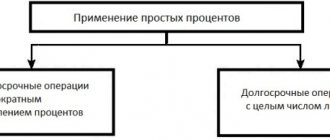To whom
An employee who is a parent, guardian or trustee of a disabled child(ren) under the age of 18 is entitled to 4 additional paid days off during each calendar month.
Moreover, both one and both parents can use the weekend, but within the limits of the total number of additional days off per month. For example, if in October the mother of a disabled child received one additional day off, then the father has the right to only three days for this month.
Summarized working time recording
When determining the average earnings of an employee for whom a summarized recording of working time is established, the average hourly earnings are used. It is calculated by dividing the amount of wages accrued for the pay period by the number of hours actually worked during this period. In this case, the average daily earnings are determined by multiplying the average hourly earnings by the number of working hours to be paid. Wages received for part-time work are not taken into account in this case.
It should be borne in mind that Article 262 of the Labor Code of the Russian Federation establishes the number of days off provided for caring for a disabled child during the month, based on the working hours established for the employee. Thus, if an institution uses summarized recording of working hours and the working day is seven hours, then the time provided for caring for a disabled child and paid from the funds of the Federal Social Insurance Fund of Russia cannot exceed 28 working hours (7 hours × 4 days. ) per month. With an eight-hour working day, no more than 32 hours per month are payable.
When accounting for working hours in aggregate, the provision of additional days off should not exceed the average daily earnings calculated on the basis of the normal working hours established by the labor legislation of the Russian Federation.
Example
The working day of a medical worker in an institution with a disabled child is six hours. In this case, the employee’s additional days off for caring for him are subject to payment in an amount of no more than 24 hours (6 hours × 4 days).
Documentation
To confirm the right to use additional days off to care for disabled children, the employee must submit the following documents:
1. A copy of the certificate establishing the child’s disability.
It is provided in accordance with the deadlines for determining disability. Thus, the category “disabled child” can be established for 1 year, 2 years, 5 years or until the disabled person reaches 18 years of age. Therefore, in the latter option, you need to take such a certificate from the employee once.
2. A document confirming the place of residence (stay or actual residence) of a disabled child.
You can confirm the place of residence of a disabled child, for example, with a certificate issued by the management company, an extract from the house register, a certificate of registration at the place of residence, and his place of stay - with a certificate of registration at the place of residence.
The employee must submit a document confirming the place of residence (stay or actual residence) of a disabled child only once.
The rules do not require a parent and child to live together, so the child's address may not be the same as the parent's.
3. Birth (adoption) certificate of a child, a document confirming the establishment of guardianship or trusteeship of a disabled child, or copies of these documents.
A document confirming the establishment of guardianship and trusteeship can be an agreement on the implementation of guardianship or trusteeship or an act of the guardianship and trusteeship authority on the appointment of a guardian or trustee.
The fact of adoption may be confirmed by a relevant court decision that has entered into force, or by a certificate of adoption. The employee submits these documents to the employer once.
4. Certificate from the place of work of the other parent (guardian, trustee, other person raising a child without a mother).
The employee must provide a certificate stating that at the time of the application, the other parent (guardian, trustee, other person raising children without a mother) did not use additional paid days off in this calendar month or used it partially, or a certificate stating that he did not receive applications for the provision of the specified days.
Providing such a certificate is necessary due to the fact that additional days off are provided only to one of the parents (guardian, trustee, other person raising children without a mother).
The employee is required to submit this certificate each time he applies for days off.
Such a certificate is not required if:
- there is documentary evidence of the death of the other parent (guardian, trustee);
- recognition of him as missing;
— deprivation or restriction of his parental rights;
— imprisonment;
- his stay on a business trip for more than one calendar month or other circumstances indicating that the other parent (guardian, trustee) cannot care for a disabled child, as well as if one of the parents (guardians, trustees) evades raising the child -disabled person.
Additional paid days off to care for a disabled child
In accordance with Part 1 of Article 262 of the Labor Code of the Russian Federation, one of the parents (guardian, trustee) to care for disabled children, upon his written application, is provided with four additional paid days off per month , which can be used by one of these persons or divided among themselves at their discretion.
Each such day is paid by the employer, based on the parent’s average earnings, and then the expenses incurred are reimbursed by the Social Insurance Fund.
Decree of the Government of the Russian Federation dated October 13, 2014 No. 1048 “On the procedure for providing additional paid days off for caring for disabled children” approved the Rules for providing additional paid days off for caring for disabled children, the authority to clarify which is vested in the Ministry of Labor and Social Protection Russian Federation in agreement with the Ministry of Finance of the Russian Federation.
To provide additional days off, the employer must submit:
- Application (frequency of submission is determined by agreement with the employer (monthly, once a quarter, once a year, upon request, etc.)
- Certificate of disability of the child
- Birth certificate of a disabled child
- Documents confirming the place of residence of a disabled child
- An original certificate from the place of work of the other parent (guardian, trustee) stating that, at the time of application, additional paid days off in the same calendar month were not used or partially used, or a certificate from the place of work of the other parent (guardian, trustee) stating that that there was no application from him to provide him with additional paid days off in the same calendar month (provided whenever the employee applies, except if there are circumstances indicating that the other parent (guardian, custodian) cannot care for a disabled child or evades his upbringing.
If one of the parents (guardians, trustees) is not in an employment relationship or is an individual entrepreneur, lawyer, notary engaged in private practice, or another person engaged in private practice in accordance with the legislation of the Russian Federation, a member of duly registered family (tribal) communities of indigenous peoples of the North, Siberia and the Far East of the Russian Federation, then the parent (guardian, trustee) who is in an employment relationship provides the employer with documents (copies thereof) confirming these facts with each application.
Features of provision
- Additional paid days off are not provided to a parent (guardian, custodian) during the period of his next annual paid leave, leave without pay, leave to care for a child until he reaches the age of 3 years. At the same time, the other parent (guardian, trustee) retains the right to 4 additional paid days off.
- Additional paid days off that are not used in a calendar month are not transferred to another calendar month, and their number does not increase if there is more than one disabled child in the family.
- The parent (guardian, trustee) is responsible for the accuracy of the information provided by him, on the basis of which additional paid days off are provided, and is obliged to notify the employer of the occurrence of circumstances entailing the loss of the right to receive them.
Support the Project
The project “Center for the Protection of the Rights of Persons with Disabilities” is being implemented by the “Without Barriers” Foundation with the support of the Presidential Grants Fund and the NGO Resource Center of Moscow / Address: Varshavskoe highway no. 76, building 2 (by appointment) Contact phone number: 8 (985) 448-8-448
Subscribe to our groups: VK https://vk.com/club51676628 FB https://www.facebook.com/Barrierfree.ru OK https://ok.ru/group/54575182053590 Instagram https://www.instagram. com/barrierfreeru Watch our Youtube channel
Spread the love
What instead of a certificate
What documents, instead of a certificate from the other parent’s place of work, must be provided to receive additional days off to care for a disabled child, if the other parent does not work or provides himself with work?
In this case, each time an employee applies for additional days off, he must submit documents (copies thereof) confirming that the other parent does not work or provides himself with work.
A document confirming that the second parent is not in an employment relationship can be his work book, if it does not contain a current record of employment.
If the second parent is registered as unemployed, then the supporting document may be a corresponding certificate issued by the employment service authority.
Persons who provide themselves with work include, in particular, individual entrepreneurs, lawyers, and private notaries. For example, a certificate of state registration of an individual as an individual entrepreneur can serve as a document confirming entrepreneurial activity.
The status of a lawyer can be confirmed by an appropriate certificate.
Parents of disabled children explained the procedure for obtaining additional leave
To receive additional paid days off, a parent must provide the employer with a certificate from the medical and social examination bureau confirming the child’s disability, documents about the place of residence of the disabled child, his birth certificate, as well as a certificate from the other parent’s place of work. If one of the parents does not work, then his working spouse must provide the employer with documents confirming this fact (for example, a certificate from the employment center declaring the citizen unemployed).
The Social Insurance Fund has looked into cases where parents of disabled children encounter difficulties in getting additional days off.
Question. I am the mother of a disabled child and want to take four extra days off to care for him. The employer requires me to provide a certificate from the place of work of the child’s father. My husband and I are divorced (there is evidence), he does not participate in raising and caring for the child, we do not communicate, so I do not know his place of work. How should I act in this situation?
— According to the rules for providing additional paid days off for caring for disabled children, when applying for additional days off, the parent provides a certificate from the place of work of the other parent (guardian, trustee) stating that at the time of application there are additional paid days off in the same calendar month they were not used or used partially, or that this parent (guardian, trustee) did not receive an application to provide him with additional paid days off in the same calendar month.
Such a certificate is not required in cases where it is documented that the other parent has died, been declared missing, deprived or limited in parental rights, is in prison, is on a business trip for more than one calendar month, or under other circumstances indicating the impossibility parent to care for a disabled child. If the marriage between the child’s parents is dissolved, and the mother does not have information about the child’s father or the opportunity to contact him, then the employer must be informed about this. In the application for additional leave, you must indicate circumstances indicating that the child’s father does not care for him and evades his upbringing. A copy of the divorce certificate must be attached to the application. In this case, the parent is responsible for the accuracy of the information provided, on the basis of which additional paid days off are provided to care for a disabled child.
Question. I live with my 16-year-old disabled son in a private house. To receive additional days off, you need a document confirming your place of residence. We currently do not have a management company. What to do?
— A document on the place of residence (stay) of a disabled child, if there is no change in the child’s place of residence, the employee must submit only once.
As a document with information about the place of residence, you can provide a child’s passport with a mark of registration at the place of residence, and for children under 14 years of age - a certificate of registration at the place of residence.
The Social Insurance Fund reminded that disabled children are entitled to technical means of rehabilitation (TSR). You can find out about them using SotsPIN (social personal information navigator for disabled children). The goal of the “Social PIN” project is to provide preliminary notification to representatives of disabled children about the right to be provided with technical means of rehabilitation. As part of the project, each disabled child is assigned a curator who develops an individual plan for providing TSD and NEP. The FSS has been implementing this project since 2021, and since 2021 it has been working in all regions of the country and helps improve the exchange of information between families with disabled children and the Foundation. At the beginning of the year, parents and legal representatives of disabled children are notified of what technical means of rehabilitation (TSR) their child should be provided with this year. It is reported what types of TSR are required until the end of the year, where and how to obtain them, as well as the addresses and telephone numbers of the regional office and the responsible employee of the Fund. At the choice of parents or legal representatives of children with disabilities, information can be provided by email, letter by mail, SMS or by telephone (home or mobile). Another option is through the parent’s personal account on the gosuslugi.ru portal. For example, if there is information that in May a child is entitled to orthopedic shoes, and a little later a wheelchair, the parent can decide when it is more convenient to receive one or another product, come for each, or get everything at once a little later. The notification will also indicate the dates for receiving rehabilitation funds. You can also choose the method of receipt - for example, order a wheelchair from the Foundation and pick it up at a convenient pick-up point, or buy the product yourself and receive compensation.
When the weekend won't work
Additional days off are not provided in the following cases:
1. If the employee requests unused days off for the previous calendar month. Additional days off unused in a calendar month are not transferred to another calendar month.
2. If the employee requests additional days off during the period of the next annual paid leave, leave without pay, leave to care for a child under three years of age. At the same time, the other parent (guardian, trustee, other person raising a child without a mother) retains the right to four additional paid days off.
If an employee is given additional days off during the specified periods, the employer may be denied reimbursement for the costs of paying them.
If circumstances arise that entail the loss of the right to use additional paid days, the employee is obliged to notify the employer about this.
If it is discovered that additional days off have been provided to an employee who did not have the right to do so, the employer may be denied reimbursement of expenses for their payment, including if he did not know or could not know about these circumstances.
Payment procedure for holidays
Currently, the Explanations of the Ministry of Labor of Russia and the Federal Social Insurance Fund of Russia dated April 4, 2000 No. 3, No. 02-18/05-2256 “On the procedure for providing and paying additional days off to one of the working parents (guardian, trustee) for child care” are in force - disabled people" (hereinafter referred to as the Explanations). They were approved by Resolution of the Ministry of Labor of Russia and the Federal Social Insurance Fund of Russia dated April 4, 2000 No. 26, No. 34. They, in particular, say that if there is more than one disabled child in a family, the number of additional paid days off per month does not increase (p 8 Explanations). That is, there will be no more payment for additional days off to care for disabled children in this case.
Since January 1, 2010, the costs of paying for such days off are financed by interbudgetary transfers from the federal budget, provided in accordance with the established procedure to the budget of the Social Insurance Fund of Russia.
Each additional day off for a parent (guardian, trustee) to care for disabled children and people with disabilities from childhood until they reach the age of 18 is paid in the amount of average earnings. The amounts are paid to employees at the expense of the Russian Social Insurance Fund. This is stated in paragraph 10 of the Explanations, as well as in the letter of the FSS of Russia dated May 5, 2010 No. 02-02-01/08-2082.
The average daily wage to pay for each additional day off for a working parent is calculated in accordance with Regulations approved by Decree of the Government of the Russian Federation of December 24, 2007 No. 922. According to paragraph 3 of Regulation No. 922, the calculation of the average salary of an employee, regardless of his work mode, is based on the actual salary accrued to him for the 12 months preceding the date of payment.
To calculate average earnings, all types of payments provided for by the remuneration system and applied by the relevant employer are taken into account, regardless of the sources of these payments. In this case, the time, as well as the amounts accrued during this time, is excluded from the calculation period when the employee received temporary disability benefits, he was provided with additional paid days off to care for disabled children and people with disabilities since childhood, etc. (clause 5 of Regulation No. 922 ).
Average daily earnings to pay for four additional days off are calculated by dividing the amount of wages actually accrued for days worked in the billing period, including bonuses and remunerations taken into account in accordance with clause 15 of the Regulations, by the number of days actually worked during this period (clause 9 of the Regulations No. 922).
Additional standards
The law also regulates some features regarding the duration of the working day, namely:
- if a person has to work more than four hours, he is required to take a lunch break;
- the possibility of receiving reduced time - in agreement with the employer, for which they write a corresponding application with a draft of a more convenient work schedule.
As for overtime work and business trips, they are possible only with the official written consent of the employee. The mother or father of a disabled child has the legal right to refuse to participate in them (Article 259 of the Labor Code).
Article of the Labor Code of the Russian Federation 259 “Guarantees for pregnant women and persons with family responsibilities..”
Important! The employer must stipulate in advance that the subordinate has the right to refuse additional work.




